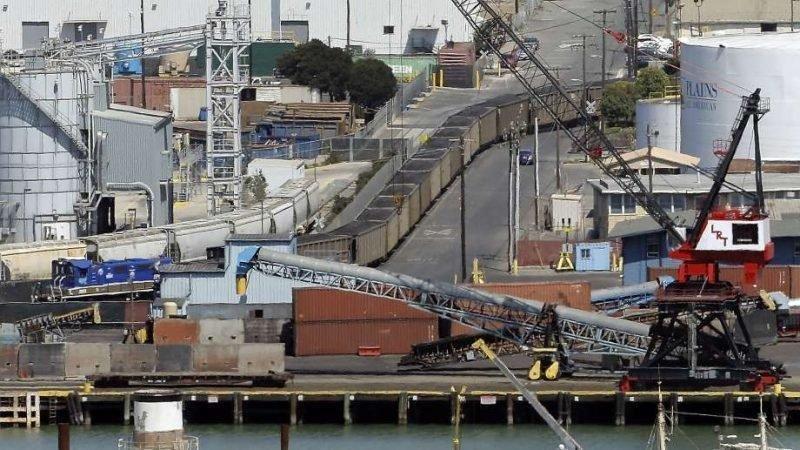Photo courtesy www.sfchronicle.com
Carbon and Emery counties lost another battle in the “War on Coal” Monday when the Oakland City Council in Oakland, Calif. voted unanimously to ban coal from passing through a major deep-water port in its city.
The Oakland Global Trade and Logistics Center, which is in process of being developed by Phil Tagami, lies on a city-owned former Army base. One module of this trade center is the Oakland Bulk and Oversized Terminal (OBOT), projected to cost $250 million. This planned terminal is to be privately owned and will be operated by Terminal Logistics Solutions (TLS).
The OBOT is expected to move 10 million tons of bulk freight per year. Carbon, Emery, Sanpete and Sevier counties are negotiating a $50 million deal with TLS to reserve half of that bulk freight allotment for Utah products.
The money put up by the four Utah counties comes from the CIB (Community Impact Board) fund. Originally the CIB fund was set up to provide loans or grants to state agencies and subdivisions of the state that are socially or economically impacted by mineral resource development on federal lands. Typically, CIB dollars are loaned or granted for local projects such as roads, water and sewer systems, parks and public buildings.
According to Carbon County Commissioner Jae Potter, in March of 2015 rules were changed to allow CIB money to be invested in larger infrastructure projects. During the last legislative session, the money was set up in a Throughput Infrastructure Fund. The Throughput Infrastructure Fund allows the money to be used outside of the state of Utah.
“The vote in Oakland is disappointing,” voiced Potter. “The issue now is between the developer and the operator; these four counties in Utah have no part in it.”
Potter said he did not believe that the city of Oakland could legally stop the port from accepting and outsourcing coal because the permits to operate the facility had already been granted, but it appears the court system will make the ultimate decision.
For now, the $50 million will stay in the Throughput fund. “We will continue to look for other export opportunities for our coal while we wait to see what happens in Oakland,” Potter said.
When asked about the “war on coal”, Potter said that it is “Just uninformed sensationalism. The people fighting the war on coal just don’t understand what it does to communities like ours and to personal lives.”


